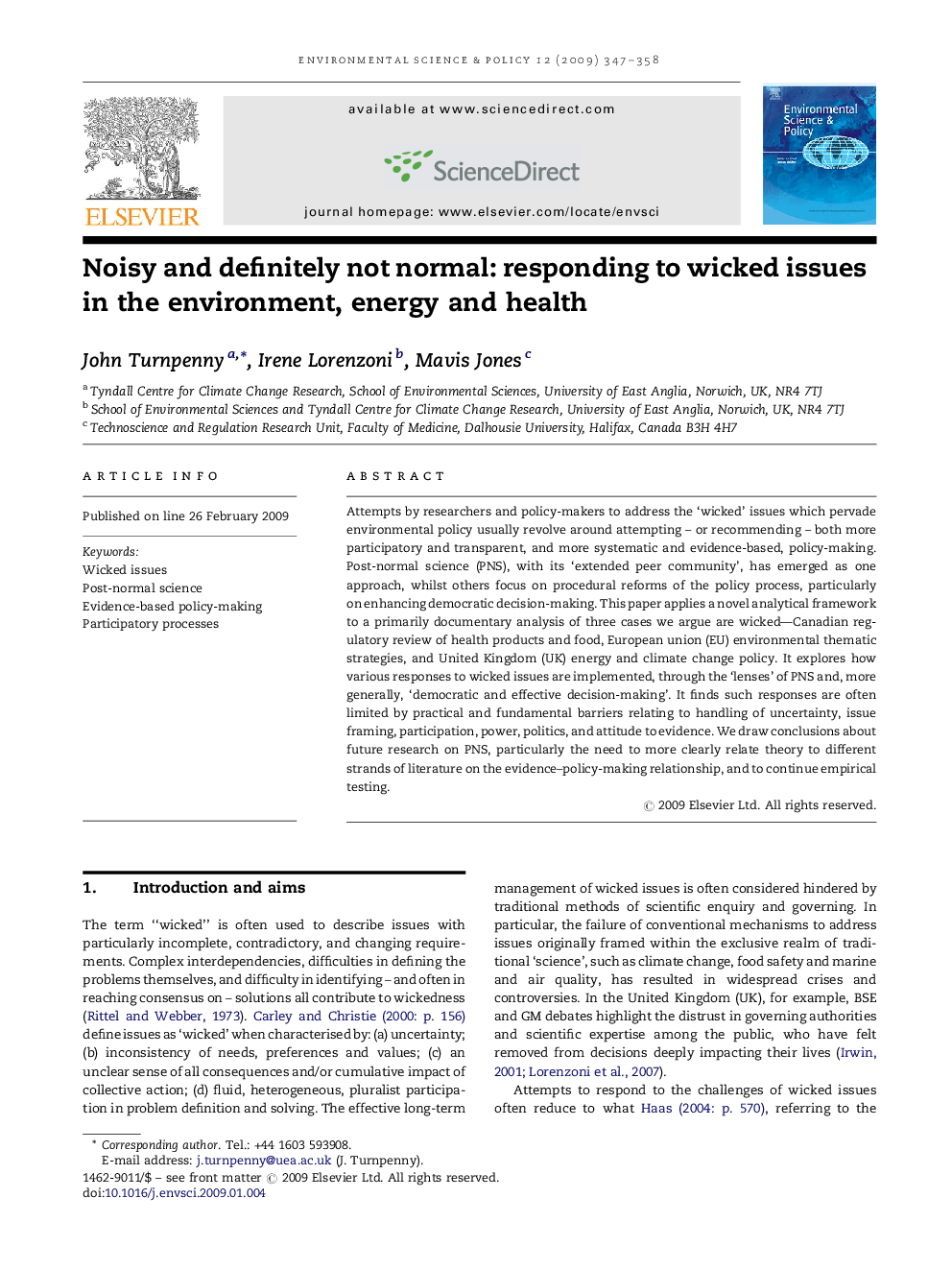| Article ID | Journal | Published Year | Pages | File Type |
|---|---|---|---|---|
| 1054030 | Environmental Science & Policy | 2009 | 12 Pages |
Attempts by researchers and policy-makers to address the ‘wicked’ issues which pervade environmental policy usually revolve around attempting – or recommending – both more participatory and transparent, and more systematic and evidence-based, policy-making. Post-normal science (PNS), with its ‘extended peer community’, has emerged as one approach, whilst others focus on procedural reforms of the policy process, particularly on enhancing democratic decision-making. This paper applies a novel analytical framework to a primarily documentary analysis of three cases we argue are wicked—Canadian regulatory review of health products and food, European union (EU) environmental thematic strategies, and United Kingdom (UK) energy and climate change policy. It explores how various responses to wicked issues are implemented, through the ‘lenses’ of PNS and, more generally, ‘democratic and effective decision-making’. It finds such responses are often limited by practical and fundamental barriers relating to handling of uncertainty, issue framing, participation, power, politics, and attitude to evidence. We draw conclusions about future research on PNS, particularly the need to more clearly relate theory to different strands of literature on the evidence–policy-making relationship, and to continue empirical testing.
